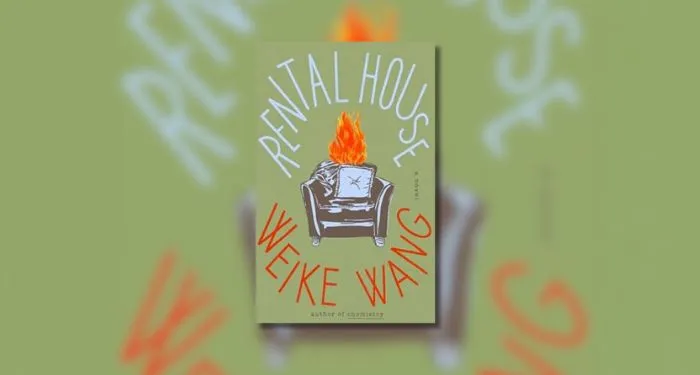This winter in Israel-Palestine is a dark one, and not because the days are shorter. We have war crimes, man-made famine, and ethnic cleansing in both Gaza and the West Bank. Since early October the army has intermit- tently stopped humanitarian aid—namely food—from entering the northern part of Gaza, which has a population of some 200,000 or more. Much of that population has now been forcibly displaced toward the tent cities farther south, but it seems that tens of thousands of Palestinians are still hanging on in Jabaliya and Beit Lahiya, where the fighting and the bombing continue. Brigadier General Itzik Cohen, who is in command in the Jabaliya arena, has claimed that there are no civilians left in the north of Gaza. Oddly, many of these nonexistent ordinary people are being killed nearly every day. Here is one egregious example. On October 29, after four soldiers were killed in Beit Lahiya, the army bombed a five-story apartment building; it claimed that a “lookout” had been sighted on the roof. Nearly a hundred people died, at least twenty of them children, and we have no count of the wounded. An obscene question arises: Was it worth it—for a presumed lookout? But I can’t help asking myself: For this we created a Jewish state?
Judging by reports from the field, the plan seems to be to maintain Israeli control of northern Gaza indefinitely and—if the apocalyptic Messianists have their way—to settle it with Jews, as if nothing has been learned from the bitter experience of the past. We even have a high-ranking theorist of the current catastrophe in Gaza—retired major general Giora Eiland—who thinks that besieging a city or a country is perfectly legitimate under the rules of war, even if innocents who can’t or won’t get out die of starvation or illness.1 It seems that his plan for Gaza has now become the government’s plan.
What comes next? I fear that it will be full-scale war with Iran. Reports from early December describe the situation in Beit Lahiya as unthinkable misery—rotting corpses in the ruins, no food, no water, no place to hide, no let-up in the bombings—while mass starvation has taken hold in the south of Gaza, partly because local criminal gangs commandeer the supply trucks that manage to get through the blockade.
Let’s put aside, for the moment, the hard-hearted rationalizations that are all too prevalent among Israelis, such as “It’s all the fault of Hamas,” or “They started it,” or “Our soldiers’ lives come first,” or “Our enemies want only to destroy us,” or “All Arabs are Hamas.” (This last one is common among Prime Minister Benjamin Netanyahu’s supporters and very close to his stated view of the Palestinian Authority.) What is striking, and horrific, is the fact that Israel has embraced cruelty and atrocity as a normative mode of waging war. It’s not as if there was no cruelty in the army’s rules of war before October 7, 2023. But since that date a dark miasma has enveloped the collective conscience of this country. If you watch the evening news on the mainstream Channel 2, or listen to government ministers and members of the Knesset, or even if you simply pay attention to accidental encounters with passersby, you usually perceive a blank indifference to the huge civilian casualties in Gaza, in Lebanon, and—in particular—among Palestinians in the West Bank. The government sets the tone; the army, although at odds with Netanyahu, follows suit; the Jewish supremacists marshal biblical texts proving the joys of revenge. For them, and for many others in Israel, tens of thousands of dead Palestinian civilians in Gaza are an acceptable price to pay for a reckless, savage war.
Needless to say, there are also many Israelis who are sickened by this idea and who have the courage to speak out or write against it publicly.2 But Netanyahu’s autocratic state has made pursuing an endless war a self-fulfilling (in the case of Netanyahu, also self-serving) goal in the complete absence of any rational plan to end it. Eternal war is supposedly justified by the existential danger that this government has itself created, or recreated, after several decades in which Israelis felt reasonably secure, largely because of the peace agreements with Egypt and Jordan.
Not once in the course of the last fourteen months have I heard the well-meaning reporters and commentators on Channel 2 utter a single syllable of sorrow, let alone remorse, at the mounting count of Palestinians killed in Gaza. The statistics published by the Gaza Health Ministry or the human rights organizations still active there—perhaps inexact or inflated, as the army likes to claim—are almost never noted on the TV and radio news and only minimally reported in the press. Maybe remorse, or even polite regret, is too much to expect from a country at war. Did the British and the Americans show any empathy with the victims (some 25,000) of the Dresden bombings of February 1945? Empathy is usually focused on individuals, not on groups. But still: believe it or not, the Palestinians are our sisters and brothers, and someday, if the Israeli state survives, they will be our partners in making peace. There is no other way forward. What we are experiencing now in Israel is a profound failure of our shared humanity, a deadly apathy of the soul. Worse still is the taste for killing and inflicting pain that has infected so many, beginning at the top.
The moral apathy in the political realm takes many palpable forms. Each day brings more bad news. November 5 was election day in the US and thus a good time for the prime minister to enact a devious political drama while all eyes were focused elsewhere. For months he had been eager to dismiss his minister of defense, Yoav Gallant, whom he clearly detests. (The feeling is no doubt mutual.) Gallant is by no means a heroic model of wartime ethics, but he is gifted with a virtue otherwise entirely unknown to Netanyahu’s government: he almost never lies. He also put freeing the Israeli hostages in Gaza at the top of his priorities, in accordance with classic Jewish values, again in marked contrast to Netanyahu, who long ago consigned them to their fate. Dismissing a popular and credible minister of defense during a multifront war when Israel was bracing itself for another Iranian missile attack was an act of lunacy; it did, however, have the desired effect of shoring up Netanyahu’s coalition, the objective that matters most to him.
Gallant has been replaced by Israel Katz, a Netanyahu yes-man with no knowledge of military and defense matters and no experience apart from politics. There is every reason to believe that Gallant’s dismissal is only the first of many to come. Netanyahu will find ways to dismiss the IDF chief of staff, Herzi Halevi, and probably also the head of the Israel Security Agency (Shabak), Ronen Bar, and other senior military figures; he’ll replace them with the incompetent sycophants he likes. He has also singled out the courageous attorney general, Gali Baharav-Miara, whom he sees as his archenemy. All this is meant to divert any implication of responsibility, let alone guilt, for the October 7 Hamas massacre from Netanyahu himself to various easily available alternative targets.
In his farewell address, Gallant mentioned two more evident reasons for his dismissal, aside from the matter of redeeming the hostages. One was his insistence that Israel needs a formal state commission of inquiry, headed by a Supreme Court justice, into what happened on October 7—not some lame investigation by Netanyahu’s handpicked stooges. And Gallant was, from the start, adamant in demanding that the Knesset enact a law that would impose some minimal element of equality in the military draft. Ever since David Ben-Gurion’s first government, in 1948, most ultra-Orthodox (Haredi) men have been exempt from serving in the army. But in 1948 only some four hundred such men were exempted. Today there are tens of thousands or more every year, and the non-Haredi population is boiling with resentment at the fateful disparity, especially in wartime, when soldiers, young and old, are being killed or wounded every day.
Gallant was the last barricade against a new law, not yet passed, to continue to exempt nearly all Haredi men, at present and in future, from military service as part of the Netanyahu program to remain in power. Israel is well on its way to an authoritarian government—actually a dictatorship on the model of Viktor Orbán’s Hungary and Recep Tayyip Erdoğan’s Turkey. The extreme right wing, represented in the government by the Jewish supremacists Bezalel Smotrich and Itamar Ben-Gvir, despises the very concept of democracy; they march to a higher principle. A generous view of Netanyahu’s seemingly erratic, not to say criminal, behavior might claim that he is the prisoner of these extremists, who are always threatening to leave the coalition if the prime minister does something even slightly moderate or sensible for a change. But it would be more accurate to say that Netanyahu couldn’t care less about the rule of law and the democratic order—in fact, he has done whatever he could to subvert them. It is the citizens of the state of Israel who are the prisoners, hostages to a prime minister with delusions of grandeur who, in the words of the popular columnist Nadav Eyal, has nothing but contempt for his own people and for the state that he allegedly serves.3
Netanyahu likes to remind us that he was democratically elected. But it is important to remember that the present government came to power in late 2022 by a fluke: the then head of the Labor Party, Merav Michaeli, foolishly and stubbornly refused to form a joint ticket with the left-wing Meretz party, which in the end didn’t pass the electoral threshold. A similar mistake doomed the votes for the Arab Balad party, which refused to join either of the other two Arab parties. Thousands of votes were thus wasted, and Netanyahu won with a small margin. The latest polls continue to show that a majority of Israelis—over 60 percent—don’t want him in office. But the mass demonstrations that came close to overturning the government before the war and that succeeded—temporarily—in thwarting its attempts to destroy the Supreme Court (and the legal system as a whole) seem to have lost their energy.
The relatively rational and liberal camp, which may count for half of the electorate, is demoralized, traumatized, heavy with despair. The failure of the government to bring back the hostages in Gaza, who are dying after over four hundred days in the tunnels, is for most of us a source of unfathomable agony. We stand in front of the president’s house holding up our signs, we sit silently in protest for hours in the city streets, we cry out day after day for a cease-fire that would bring at least some of the hostages home alive, but no one is listening. This is not the Israel we once knew.
The government is not, however, simply corrupt, incompetent, and morally obtuse. It is now planning to enact a law that will decimate the Arab parties in the Knesset on the ridiculous grounds that their candidates supposedly support terror, thereby effectively disenfranchising a fifth of Israel’s population and ensuring a permanent majority for the right. Netanyahu is driven by an idea that has guided him for decades and that still, in Israel’s deepest crisis, obsesses him: the stubborn refusal, at any cost, to allow a Palestinian state to emerge. And now we, too, again have Donald Trump, whose nominee for ambassador to Israel, Mike Huckabee, has already announced that there is no such thing as an Israeli occupation of Palestinian land. Huckabee is in favor of annexation and will, he says, do whatever he can to advance it. Life for Palestinians in the occupied territories, already unbearable, will become still harder and more dangerous. These days the uncontested rulers of the West Bank are the marauding Israeli settlers in the illegal outposts that are popping up everywhere. Their express goal is a second Nakba—the expulsion of the entire Palestinian population in Area C, some 62 percent of the West Bank, over which Israel has sole control.
Look what happened to the ancient village of Zanuta at the southernmost point of the occupied territories. I knew it well in the years before the war, when we accompanied the shepherds there to their grazing grounds in order to protect them from the settlers and soldiers. Today there is a settler outpost of exceptional virulence only some two hundred yards from the village. Like all other villages in the South Hebron Hills and the Jordan Valley, Zanuta was subjected to the settlers’ repeated threat: “We’ll be back in twenty-four hours, and if you’re still here, we’ll kill all of you.” Along with the threat there were recurrent, terrifying invasions of the village by heavily armed settlers. Eventually, in October 2023, after the start of the war, the people of Zanuta could no longer stand the constant attacks; they abandoned their homes. No sooner were they gone than the settlers destroyed all the stone houses and sheepfolds as well as the beautiful school that had been funded by the European Union.
So far the story is familiar; Zanuta’s fate was shared by some twenty-two other Palestinian villages in South Hebron and the Jordan Valley. But the Zanuta shepherds appealed to Israel’s High Court of Justice. In July 2024 the court decreed, first, that these villagers should be allowed to return to their homes and, second, that the army and the police had to ensure their safety there. The second stipulation was a kind of fantasy, utterly remote from reality on the ground; you will be hard put to find even a single army officer or policeman anywhere in the territories who would protect Palestinians from Israeli settlers. Still, the hopeful people of Zanuta returned to their demolished homes. At that point the Civil Administration—that is, the army—told them that they were not allowed to build even a small clay oven, let alone rebuild a room or put up a wall or even a curtain in a ruined house. Any attempt to put one stone on top of another would bring the soldiers back within an hour. At night the Zanuta shepherds with their families were sleeping on the ground under the stars.
They held out for three weeks or so. Settler attacks resumed with full force. The Palestinians fled. Zanuta is no more.
A few days ago I visited the ruins of the village. The devastation is total. One wall of the school is still partially standing. It has an elegiac inscription in Arabic: “We have the right to an education.” I have never seen people so devoted to educating their children as the Palestinians of South Hebron.
In the case of Zanuta the army and the police emptied the High Court ruling of its meaning. For soldiers on the West Bank, now fully aligned with the violent settlers, the High Court is a nebulous and distant entity. As an officer once said to me when I showed him the High Court ruling prohibiting the expulsion of Palestinians from their grazing grounds, “Why do I need the High Court? I have my gun.”
—December 18, 2024



















 English (US) ·
English (US) ·